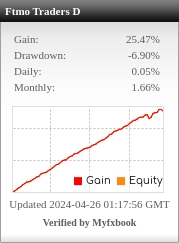
Title: Environmental Impact of Proprietary Trading: A Comprehensive Analysis
In recent years, there has been a growing concern about the environmental impact of proprietary trading in the financial markets. As traders and investors increasingly turn to automated trading systems like Forex robot expert advisors to execute trades on their behalf, questions have been raised about the carbon footprint and sustainability of these high-frequency trading practices.
Environmental Impact of Proprietary Trading
Proprietary trading, also known as prop trading, involves firms trading for their own profit rather than on behalf of clients. With the rise of algorithmic trading and high-frequency trading, prop trading has become more prevalent in the financial markets. While these automated trading systems can execute trades at lightning speed, they also consume a significant amount of energy, contributing to greenhouse gas emissions and environmental degradation.
According to a study by the University of Cambridge, high-frequency trading accounts for a significant portion of carbon emissions in the financial industry. The study found that the energy consumption of a single high-frequency trading firm can rival that of a small city. This has led to calls for greater transparency and accountability from prop trading firms in terms of their environmental impact.
Major Environmental Concerns
1. Energy Consumption: High-frequency trading systems require powerful computers and servers to execute trades at ultra-fast speeds. These systems consume a large amount of energy, contributing to carbon emissions and the depletion of natural resources.
2. Electronic Waste: The rapid pace of technological advancement in the financial industry has led to a high turnover of electronic devices and equipment. As a result, there is a growing concern about the disposal of electronic waste generated by prop trading firms.
3. Data Centers: Proprietary trading firms rely on data centers to house their servers and infrastructure. These data centers consume a significant amount of electricity to operate, further exacerbating their environmental impact.
Impact on Climate Change
The proliferation of high-frequency trading and algorithmic trading has raised concerns about their role in exacerbating climate change. The energy-intensive nature of these trading practices contributes to carbon emissions and global warming. As the financial industry continues to embrace automation and technology, it is essential for prop trading firms to prioritize sustainability and reduce their environmental footprint.
Conclusion
The environmental impact of proprietary trading is a complex and multifaceted issue that requires further research and analysis. As the financial industry grapples with the challenges of climate change and sustainability, it is imperative for prop trading firms to adopt environmentally responsible practices and mitigate their impact on the planet. By promoting transparency and accountability, these firms can ensure a more sustainable future for the global economy.
Sources:
– University of Cambridge Study on High-Frequency Trading and Carbon Emissions
– Wikipedia: Proprietary Trading
For more information about sustainable trading practices, visit Forexmoneyman.com.



